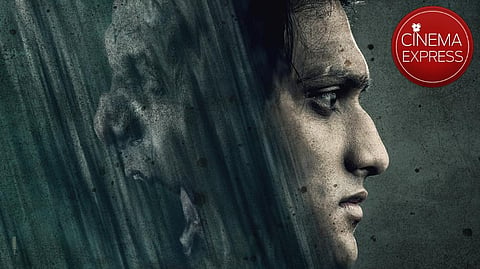Ghatikachalam movie review: A promising psychological horror weighed down by predictability
Ghatikachalam movie review(2 / 5)
Repression is a fascinating subject when it comes to cinema. The long, slow burn of an unexpressed life is fertile ground for psychological horror. Ghatikachalam understands this in theory, and at times, even in execution. The film, directed by Amar Kamepalli, revolves around a teenage boy whose inner chaos manifests outwardly in the most terrifying ways. It is built around a haunting idea, that suppressed rage and unacknowledged trauma can erupt as full-blown possession. But as with many good horror films trying to wear an intelligent hat, Ghatikachalam overestimates its mysteries and underestimates the viewer’s ability to solve them.
Director: Amar Kamepalli
Cast: Nikhil Devadula, Prabhakar Podakandla, Aarvika Gupta, Rangadham
The film follows Kaushik (a magnetic Nikhil Devadula), a teenage medical student who lives under the polite tyranny of his parents. His father decides his career path. His mother decides his diet. Kaushik, painfully introverted and constantly bullied, starts hearing a voice. At first, it gives out minor commands. Burn your textbooks. Pick a fight. But soon, the voice, which identifies itself as Ghatikachalam, takes full control. What follows is a long and increasingly repetitive descent into Kaushik’s psychosis, with the family helplessly watching as he spirals into erratic behaviour. The film teases out its twist, the origin and nature of Ghatikachalam, far longer than it needs to. By the time it finally coughs up the answer, the audience is already sitting with it in hand, checking their watches.
It doesn’t help that the writing mistakes restraint for depth. The screenplay lingers too long on familiar beats, like Kaushik hearing voices, parents reacting in horror, a psychiatrist muttering platitudes like “Control yourself,” and it forgets that horror thrives on progression. The dread must evolve with each scene. But here, the narrative doesn’t spiral as much as it stalls. The second half, in particular, is an extended stretch of emotional deja vu, repeating dramatic cues without providing any real escalation. And then there’s the film’s rather strange relationship with psychiatry. In what has become an all-too-familiar trope, the psychiatrist character, who is supposed to represent logic and healing, functions more like a concerned neighbour at a colony meeting. There’s no real diagnosis, no insight into Kaushik’s mental state, no use of actual medical language or framework. Instead, we’re fed a vague cocktail of childhood trauma and possession mythology, topped with a climactic reveal that lands with a thud rather than a bang.
The disappointment is compounded once you realise that Ghatikachalam has real, solid intentions. In an age when conversations about mental health are more urgent than ever, the film tries to spotlight the often-overlooked emotional abuse that many children face within seemingly normal households. The horror here is not in the supernatural, but in the slow corrosion of spirit that comes from never being heard or seen. Kaushik’s eventual outburst feels earned, not because of the ghost, but because of a lifetime of silencing. That core idea is powerful. It just deserved a more robust script. What elevates the film is its central performance. Nikhil Devadula is astonishingly assured for someone so young. He plays Kaushik with an evocative fury, carrying much of the film’s weight on his shoulders. His eyes, fingers, smile does the work that the dialogue often fails to do. You believe in his breakdowns. You root for his moments of clarity. In the absence of stronger writing, Nikhil gives us a reason to keep watching.
Technically, the film punches above its weight. Sai Maneendhar Reddy’s sound design is both eerie and immersive, giving the film its most reliable jolts. Flavio Cuccurullo’s background score, a blend of Indian melodic textures and string-based atmospheric cues, complements the film’s tone surprisingly well. The craft shows signs of innovation, even when the story does not. Director Amar Kamepalli stages some effective sequences. A few confrontations between Kaushik and his father hit hard. The domestic tension, when allowed to speak for itself, is thick and believable. But too often, the film doesn’t trust its audience. It explains too much, too late, and loops back over scenes it should have long since moved on from.
What Ghatikachalam really needed was a sharper pair of editorial scissors and a bolder sense of narrative rhythm. It is too enamoured with its premise to realise when it stopped surprising us. That said, there is enough in here, thematically and emotionally, to suggest that Kamepalli has a voice worth lookin at. And Nikhil Devadula is a talent to watch out for. In the end, Ghatikachalam is like an ambitious thesis trapped inside an average student’s assignment. The facts are there. The intent is clear. But the articulation is muddled. Still, it’s a film that deserves discussion, if only because it cares to look inside the head of a boy society would rather ignore.

